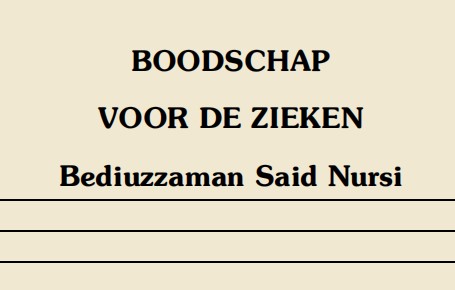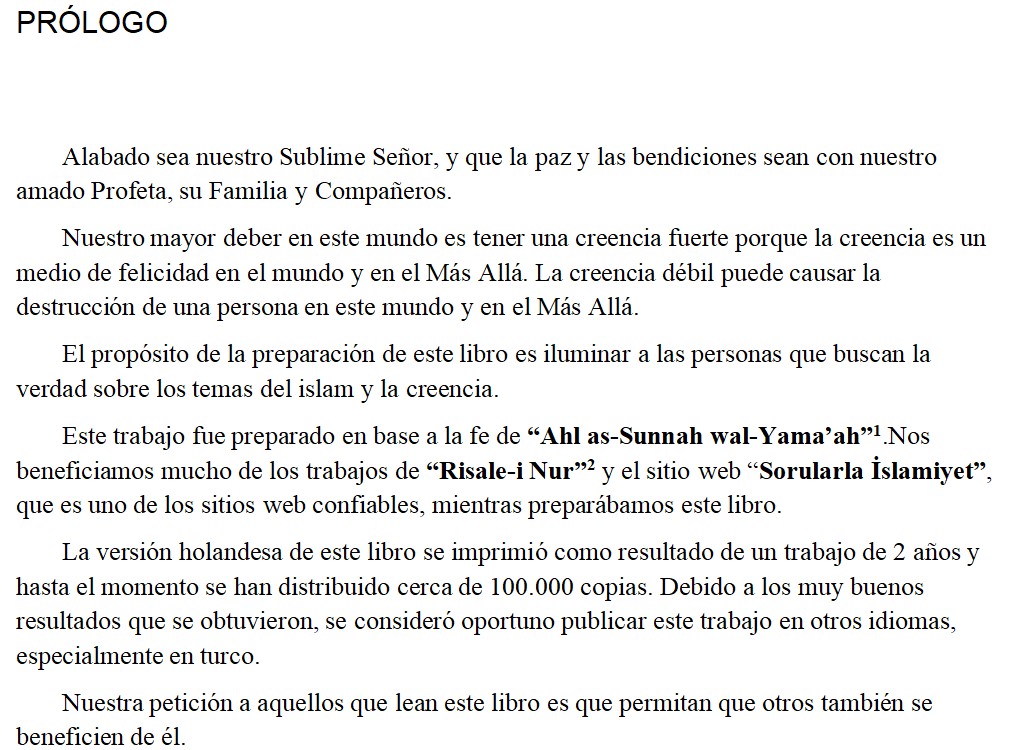
O People of The Book !
The root and essence of the “heavenly religions” are one and the same. They all originate from the same source. The difference lies only in the details arising from the different customs and understandings of the nations. In other words, religions are essentially and fundamentally one. They only differ in the details of their rulings. For this reason, when the Qur'an invites the People of the Book to Islam, it means to say, ‘When you enter Islam, you will not lose much; on the contrary, you will find the essence of your old religion, purified of superstitions.’
Someone who comes from a completely different perspective or religion may experience difficulties and hardships during the adaptation process when entering Islam. However, it is easier for a Christian or Jew, who essentially shares the same faith, to accept Islam, which is more perfect and free from superstitions. After all, the People of the Book possess all the fundamental principles of faith; only the corrupt and erroneous aspects will be discarded, and a sound and beautiful faith will be embraced.
In Christianity and Judaism, the six pillars of faith found in Islam also exist. Only in a few branches of faith will certain later additions, some erroneous beliefs and superstitions be abandoned. Furthermore, since they do not have a sharia that addresses social and political needs, submitting to Islamic sharia should not be burdensome or difficult for them. In other words, the People of the Book have nothing to lose by converting to Islam; on the contrary, they will gain much.
For example, we already recognise Jesus (peace be upon him) and Moses (peace be upon him) as prophets. The respect and love for them will continue in the same way in Islam. A Christian or Jew who converts to Islam will not lose their prophet, but will gain a more correct and more acceptable love.
Here, we quote a part from the Risale-i Nur, explaining the verse addressing to the People of the Book:
.png)
"And that which was revealed before you (wa mâ unzila min qablika)" (Baqara-4)
Consider this: the purpose of descriptions like these is to arouse eagerness, and this implies [certain new] injunctions: "Believe in such-and-such, and make no distinction [between the prophets]." The phrase's positioning and its ties [with what precedes it] comprise four subtle points:
Firstly: The argument from what is adduced to the evidence. It is like this:
"O men! If you believe in the Qur'an, believe also in the previous scriptures, for the Qur'an confirms their veracity and testifies to them." This is indicated by "a confirmation of what went before." (2:97)
Secondly: The argument from the evidence to what is adduced, like this: "O People of the Book! If you believe in the past prophets and scriptures, you should also believe in the Qur'an and Muhammad (UWBP), for the scriptures gave the good news of his coming. Moreover, confirmation of them, and their revelation and evidences of the messengers' prophethoods are found in reality and in spirit more perfectly in the Qur'an and more clearly in Muhammad (UWBP). Thus, according to this excellent reasoning, the Qur'an is the Word of Allâh and Muhammad (Upon whom be blessings and peace) is His Messenger.
Thirdly: In this is a sign that the outcome (al-ma'âl) of the Qur'an, that is, Islam, which emerged from it in the Era of Bliss, is like a tree whose origin is fastened in the depths of the past. Its spreading roots are fed from the water-sources of that time yielding life and strength. And with its trunk in the skies of the future, its spreading branches are laden with fruit. That is to say, Islam embraces the past and the future.
Fourthly: In this is a sign that it is urging the People of the Book to believe [in Islam], for it is making it appear familiar to them, and easy. It is as though [the Qur'an] is saying: 'O People of the Book! You should not experience any difficulty in entering this [new] way, for you are not casting away your outer shell altogether, but only completing your beliefs and building on the fundamentals you already possess.' For the Qur'an does not bring any new fundamentals or principal beliefs; it modifies and perfects existent ones; and it combines in itself the virtues of all the previous books and the essentials of all the previous laws. It only establishes new ordinances in secondary matters, which are subject to change due to differences in time and place. For just as with the change of seasons, food and dress and many other things are changed; so too the stages of a person's life warrant changes in the manner of their education and upbringing. Similarly, as necessitated by wisdom and need, religious ordinances concerning secondary matters change in accordance with the stages of mankind's development. For very many of these are beneficial at one time yet harmful at another, and very many medicines were efficacious in mankind's infancy yet ceased being remedies in its youth. This is the reason the Qur'an abrogated some of its secondary pronouncements. That is, it decreed that their time had finished and that the turn had come for other decrees.
Signs of Miraculousness - 56
“..belief is a light that Allâh (May He be exalted) instils instantaneously in the hearts of those of His servants that He wishes - that is, after they have used their will power.”
Signs of Miraculousness - 50
Nur Way





